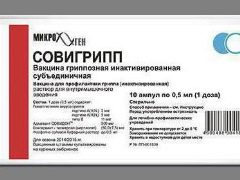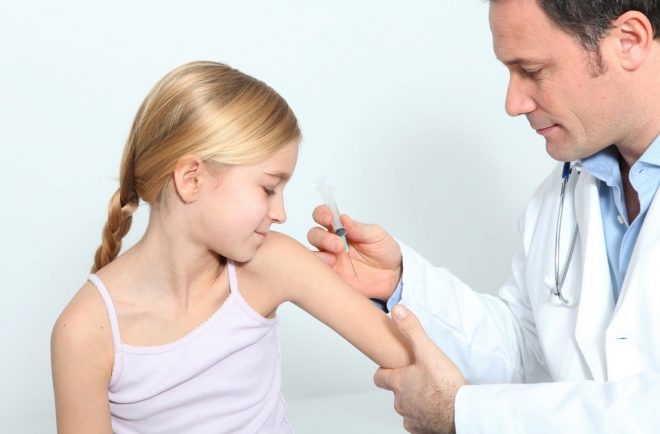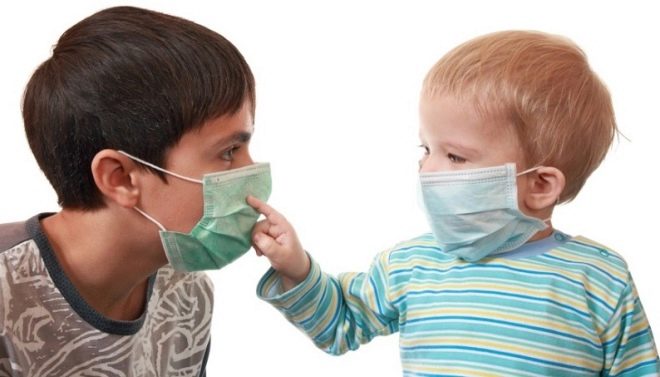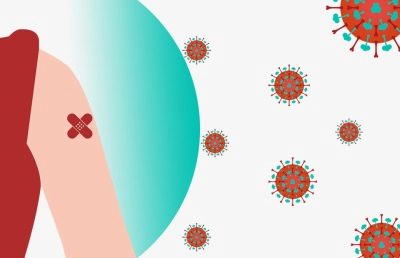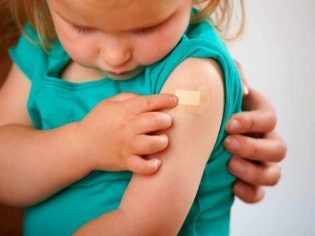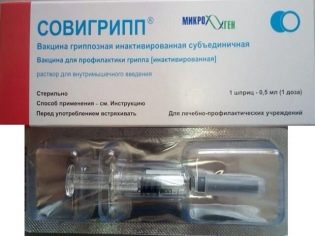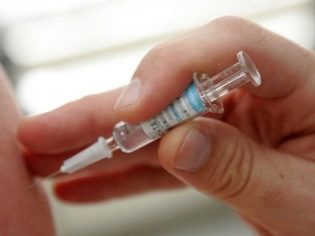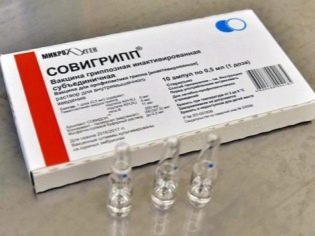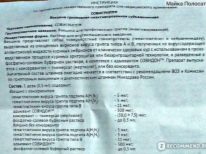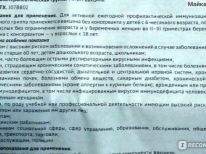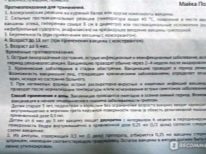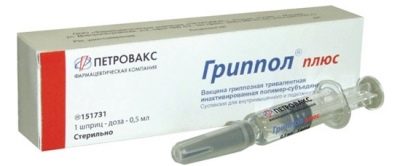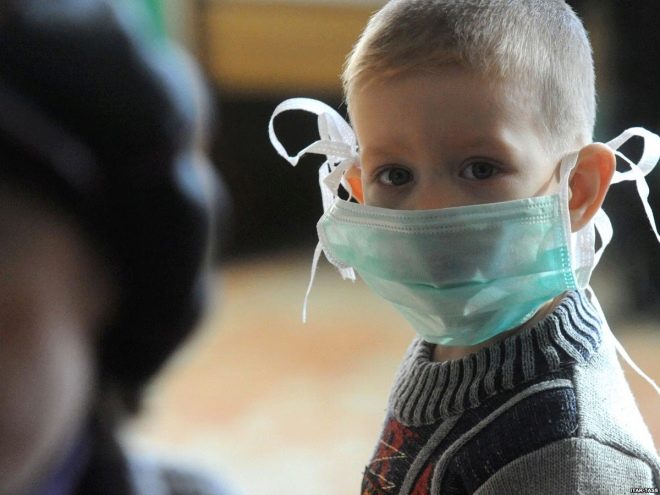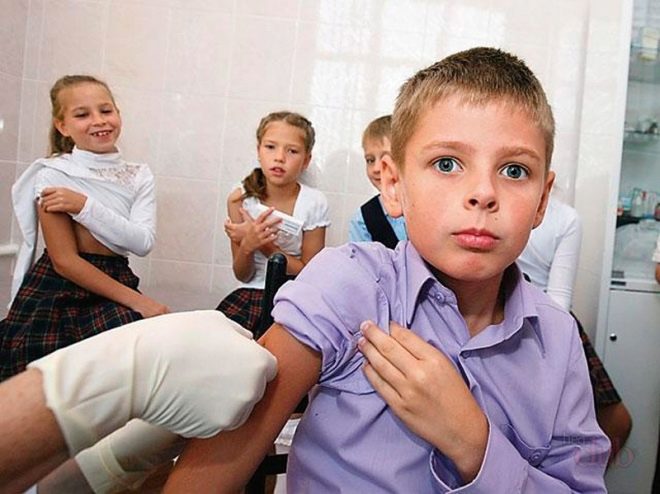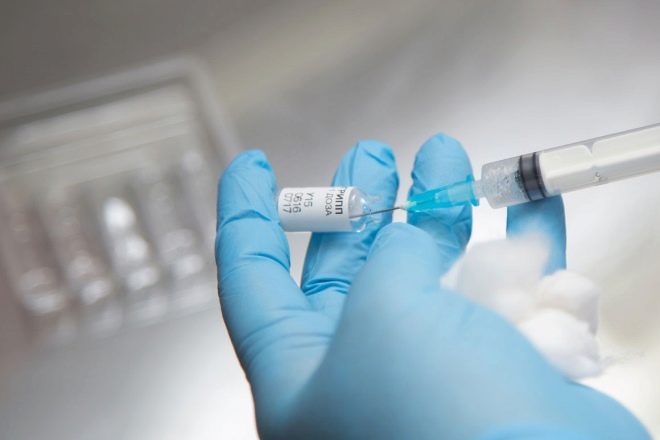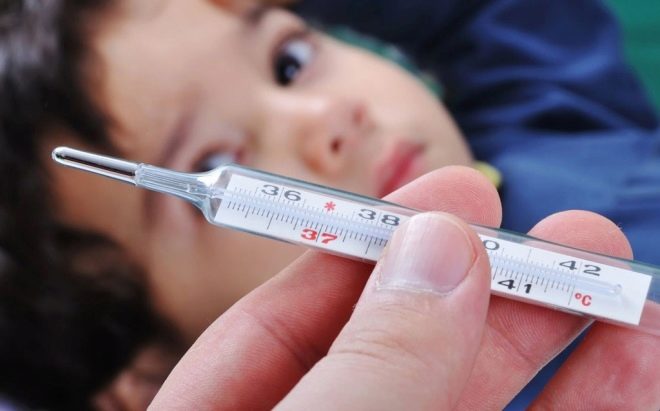Features of the vaccine "Sovigripp" for children
It is very difficult to protect your child from the flu, because the virus is highly infectious. In kindergarten and school, in transport and shop, on the street, in the sports section in the period of mass morbidity, the child may well get the flu. There is only one measure of specific prevention - vaccination. In this article we will talk about the features of the vaccine "Sovigripp", long-proven as an excellent tool for the prevention of influenza in children.
Why do you need to do?
Influenza is considered one of the most dangerous ailments for children, the elderly, pregnant women and those who suffer from chronic diseases. The fact is that the immunity of an adult has enough strength and ability to cope with the virus that caused the disease, without significant "losses".
The natural protection of the child's body is weak and imperfect, it has yet to get stronger. Therefore, it is not even the virus that causes the flu that is considered dangerous, but possible complications that may develop after the acute stage of the disease.
They do not develop as rarely as they seem, and can significantly impair the quality of life of the baby, and even lead to death. Among the most serious complications are meningitis, pneumonia, myocarditis, central nervous system lesions. Often, an acute viral illness ends with the development of sinusitis, otitis, bronchitis and other diseases that are possible due to the accession of a secondary bacterial or other infection.
In the period of mass morbidity, large-scale preventive measures are recommended, which include restricting attendance at crowded meetings, especially in enclosed areas, wearing gauze dressings (the virus is transmitted by airborne droplets), saturating the child's diet with vitamins and protein foods. But the only actual method of prevention is vaccination.
It is very important to understand that a vaccine given to a child does not guarantee at all that infection with the flu will not occur. But the probability of infection, even when in contact with the patient, will be significantly lower, and the disease itself, if it happens, will flow faster and easier, the risks of complications from the flu will be reduced to the minimum values.
The task of vaccination is to create in the child's body a small stock of antibodies to the virus. This reserve will be temporary, non-permanent, but it will help the immune system to cope with the disease, if the infection does happen. For vaccinations, Russian doctors use two types of vaccines. A live vaccine contains a certain amount of living virus particles - not enough to cause the disease, but enough to activate the immune system, which will begin to produce specific antibodies.
Inactivated vaccines contain virus-neutralized virus particles. Since live vaccines are most reactive, inactivated influenza vaccines are prescribed for children and other at-risk groups. "Sovigripp" refers to this group.
About vaccine
Sovigripp is a domestic inactivated vaccine for influenza, the composition of which each varies depending on the recommendations of the World Health Organization and the Ministry of Health of Russia. The fact is that the influenza virus constantly mutates, so each year it is necessary to make adjustments to the composition of vaccines, complementing them or replacing one component with another.
In the basic version, the vaccine contains surface proteins - glycoproteins of the virus, which in the laboratory genetic engineers isolate from the previously neutralized and purified particles of the causative agent of the disease: viruses type A and B. Before these viruses infect chicken embryos to obtain a vaccinated liquid as a raw material.
Sovigripp can be produced in two forms: with and without the addition of the preservative thiomersal. The second option is considered optimal for children and women awaiting childbirth. For adult patients, the use of both types of agents is allowed (with and without a preservative).
Sovigripp is administered exclusively intramuscularly, is produced in an appropriate solution for injection, there is no vaccine in other forms. The preparation is annually purchased centrally under the state program, and is supplied to medical institutions, from where it is distributed to schools, kindergartens, children's clinics of district subordination.
Each of both species of Sovigrippa contains, in a single dose, protein particles that form immunity to such types of influenza as A (H1N1) in an amount of 5 μg, subtype A (H3N2) in the same amount, and proteins of the influenza virus B in an amount of 11 mcg This composition helps to protect the child from the most dangerous subtypes and strains that most often cause severe consequences: "swine" flu and "Hong Kong".
Liquid in single bottles is usually colorless or has a light yellowish tint, which is completely allowed by the manufacturer.
Indications and contraindications
Flu vaccination in Russia is not mandatory, but is strongly recommended for all children who have reached the age of six months. During the first six months of a child’s life, innate “maternal” immunity protects. But already from half a year the crumbs become very susceptible to the virus threat.
Childhood, therefore, is considered an important indication for the use of Sovigripp, but parents should decide whether to vaccinate a child or not. Therefore, mothers of schoolchildren and kindergarteners fill in the informed consent to the vaccine or write a waiver of it. Parents of babies up to 3 years old will be offered similar consent at the children's clinic in the community.
Special attention to the risk of influenza infection and the need to participate in vaccination should be paid to parents of children from the so-called risk group. It includes frequently ill children, children who have any chronic illnesses, children who have already had flu or ARVI with subsequent complications, as well as those that are often in crowded places (kindergarten and school).
The instructions for use of the drug also indicate some contraindications to the use of Sovigrippa:
- do not use the product with a preservative if the child is under age;
- the child should not be allergic to chicken protein;
- It is forbidden to vaccinate children under six months;
If a child at the time of vaccination has signs of any disease: runny nose, cough, headache, exacerbation of chronic disease, then the introduction of the drug can worsen his condition.
If the child had a pronounced reaction to the vaccination in the previous introduction of the past episode: the fever is above 40.0 degrees, the development of puffiness in the area of vaccine administration, convulsions, then the manufacturers also do not recommend using the drug. Such a child can be given another vaccine, for example, Grippol, but the reaction should still be carefully monitored by medical personnel.If you repeat the negative experience of the vaccination of the baby will have to temporarily refuse.
Description of the drug and tips on the use of parents can always ask a pediatrician or read the official instructions on their own.
Advantages of the drug for children's use
Sovigripp provides a high degree of protection, as evidenced by clinical trials. Partly in this is the merit of a particular component that enhances the degree of immune response. This component is called Sovidon. In other flu vaccines, “Polyoxidonium” is usually added as such an “enhancer”.
Due to the carefully thought-out composition of the liquid for vaccination, it is possible to achieve a long period of protection - after vaccination, specific immunity is effective from 6 to 9 months. This is quite enough to protect the child from a dangerous disease during the entire epidemiological season. Therefore, vaccination in August-October will help provide protection almost until the next summer.
The advantage of the drug for children is the absence of a preservative, and therefore vaccination less often than other influenza vaccines causes a negative reaction of the child's body.
Parents who doubt the safety of the drug should remember that the same vaccine is administered to pregnant women, because clinical trials have shown that there is no teratogenic or other effect on the developing fetus in the womb.
How to vaccinate?
Instructions for use of the drug describes the rules for which should be vaccinated. They are agreed and approved by the Ministry of Health of Russia. Here are the key rules for using Sovigripp to protect children.
- It is necessary to conduct a vaccination campaign every year in the fall - in the winter, preferably, before the occurrence of cases of infection.
- Vaccinations are not excluded at the start of the epidemiological season, when the first cases, indicating an increase in the incidence, are already occurring.
- The inoculation is done in the arm - in the upper part of the outer surface of the shoulder (in the area of the anatomical location of the deltoid muscle).
- For children from 3 years and older, a single dose in a dose of 0.5 ml is sufficient.
- Children from six months to 3 years of age should be vaccinated twice per season — 0.25 ml of the drug is administered for the first time, and the same amount in exactly one month. Unlike older children, babies are not inoculated into the arm, it is allowed to hold it in the anterior part of the thigh surface intramuscularly.
Open the ampoule with the drug can only be sterile and in compliance with all hygiene requirements. After the injection, the remnants of the drug are not subject to storage, they must be disposed of immediately.
Before you vaccinate your child with Sovigripp, a medical professional must make sure that the vaccine is not overdue, that the integrity of the package is not compromised, that the color and transparency of the drug inside the ampoule are in accordance with the standards declared by the manufacturer.
Vaccination rooms in the clinic, school or kindergarten should be equipped with anti-shock therapy. After vaccination, physicians should observe the child for at least half an hour. Introduce the drug intravenously, drip or other method is strictly prohibited.
On the day of vaccination, the child must be examined by a pediatrician or paramedic — measure body temperature, examine the condition of the throat and nasal passages, and skin.
After vaccination, the injection site can be wetted, but on the first day it is not recommended to go for a walk with the child, as well as to engage in physical culture and sports. A gentle regimen during the day will help the child's immunity to more gently adjust to the new mode of operation.
At home, parents also need to monitor the child. If you detect fever, skin reactions or other symptoms of deterioration, you must contact your doctor.
Side effects and reactions
"Sovigripp" refers to the number of highly purified drugs, and therefore the tool is usually well tolerated.But clinical trials conducted in relation to this drug, still revealed the likelihood of adverse reactions. Therefore, after vaccination in a child, the following symptoms of a post-vaccination reaction are sometimes possible:
- more often - redness and compaction at the injection site, slight swelling of the skin, increased body temperature above 37.0 degrees, mild nasal congestion, headaches, pain when swallowing, malaise, lethargy, drowsiness;
- quite often - joint pain, muscle pain, dizziness;
- seldom - Anaphylactic shock, rashes and other allergic reactions.
Parents should not worry too much when most of the side effects appear - most of them go away on their own in 1-2 days, and they do not require any special treatment. With other vaccines, if the timing of other vaccinations are suitable, the drug is completely combined. The only exceptions are rabies vaccines.
If a child is given two vaccinations on the same day, the side effects of several drugs are taken into account, and it is also necessary to inject drugs with different syringes into different parts of the body.
Opinion of Dr. Komarovsky
According to the well-known pediatrician and TV presenter Yevgeny Komarovsky, parents should not ignore the flu shot. But with age he urges to be more cautious - to vaccinate not from six months old, but from one year old. Until that time, the best protection for the baby will be breastfeeding and members of the baby’s family vaccinated with “Sovigripp” or other means.
The pediatrician recommends that the older child be vaccinated beforehand. For the formation of a strong immunity takes from 3 to 5 weeks.
Reviews of doctors and patients
Feedback on the drug is mostly positive. According to the estimates of practicing doctors, up to 9 out of 10 vaccinated children do not get infected with the virus during the season, and the sick people suffered an illness no more difficult than the most common acute respiratory viral infection.
According to parents, Most children tolerate vaccination without side effects or with minor short-term symptoms that pass quickly.
Dr. Komarovsky will tell you about whether you should get a flu shot.
